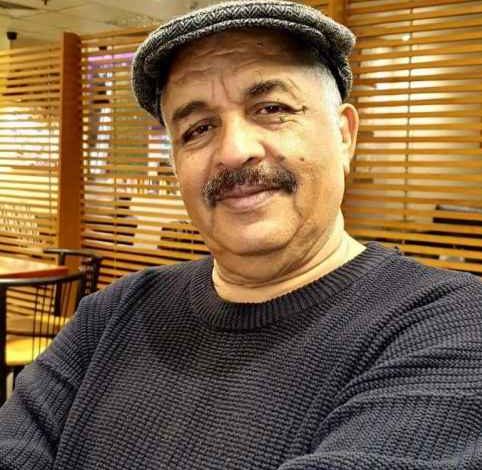Mutasim Al-Juaili: The weakness of Mass Media
Singers and creative people went out to make a living. There are too many parties no need to organise.

Sudan Events- Interview by Magda Hassan
Director Moatasem Al-Juaili launched the Harmony and Sanabel (children’s) channels, but the developments around him ravaged the present and future of the two channels before Al-Juaili hinted that the new media had stolen his dreams and that he was about to leave the profession and switch to (butchering or selling vegetables).
In this space, we discussed with him the reality and role of new media in the war.
How do you see the impact of the war on the media and media professionals?
The effects of war on society are clear and many, and the greatest are on the media level. In the presence of social media, it has a different impact because it has two balances.
A balance that takes from the channels and delivers information.
The popular media, which is very widespread, is those who do live broadcasts.
Frankly, everyone has become a media person who speaks, writes, or does a live broadcast.
On social media, the ropes have become mixed up, and there is no longer any credibility in the media in this era except in some areas that are attested to their credibility and respect.
Has social media taken the place of official media?
Social media published a number of rumors that affected the country, the war, the direction of the war, and the direction of the warriors on both sides, and this is one of the very, very big problems.
In addition, there is the very popular media, the personal impression of people, and this has become a media that influences people and has followers.
The truth of the matter is, by known standards, we have people who cannot be put in any media description, and they have thousands of views and followers, and this is a very strange phenomenon that you should not talk about.
Where is the media we know?
Regarding the media that we know in the war, it has become non-existent and cannot compete, which is the big problem. The issue of credibility, as there is no credibility from all of the largest channels that speak lies and fight lies in Sudan, and professionalism has completely ended.
What is your assessment of the media at this time?
The media is very weak. It is the media that reports facts and not changes in events. The media has changed its role. But we only have a carrier, in my estimation.
I say that our official media is very weak in the war, and it is still regional, regional, and partisan, and everyone speaks from his point of view only, and everyone has a different point of view.
Where is the role of the media in unifying visions? I do not know.
How do you explain the exit of media figures and artists at this time?
At the level of creators and artists who left Sudan, you find that people are confused about the matter. Part of the artist’s duty is to live in order to present works that some see as, for example, “Why are they singing while the country is hurt?” But on the other hand, how do people live and where do they eat? This is their profession.
There is also a legitimate question: Why did they not use their energies to mobilize determination to stop the war? A very legitimate question: The stage requires singing for the homeland and its glory so that people do not forget, but what happens is the opposite. I notice that even the very, very many parties that have no meaning are the ones that have become a tyrant on the scene. Frankly, the story is confusing.
You feel frustrated and tried to leave the profession. Why?
Yes, I prefer to sell vegetables or open a butchery. There are phenomena that distract people from the real media, and the surprising thing that I tell you is in the social media. I give an example of a person called (Al-Ansafi), who listens to him and is controlled by millions of Sudanese, whoever wants, and my father from my father. This is a fact proven by international universities that talk about the phenomenon.
Al-Insarafi: How can a disappeared person influence millions of people? This is the media, but is this what we know of the media? This is the question.
How do you see the future of the media in light of the current challenges?
In general, my view is not optimistic regarding the situation of the media in Sudan and the situation of the media professionals. The same diseases are still present and nothing has changed. We have become like the Bourbons. They have not learned about us and have not forgotten about us.



